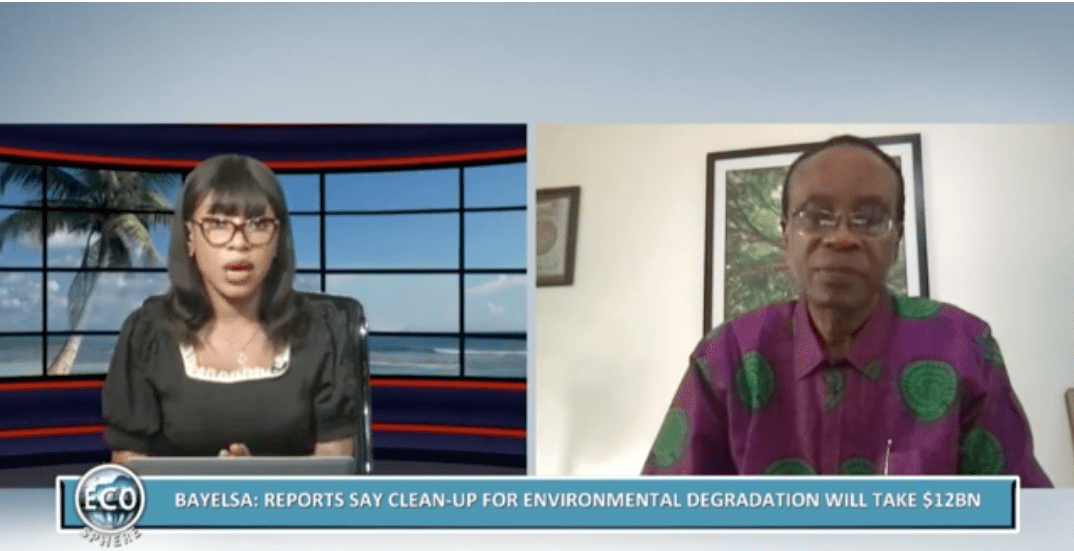NGOs Demand Answers From Agip Over Environmental Degradation In Niger Delta Communities

A Coalition of 10 concerned Non-Governmental Organisations has found fault with the near-concluded selling transaction between Oando PLC and Eni which enables the latter to acquire 100% of the shares of Nigeria Agip Oil Company Limited.
The Media and Communication Lead for the Health of Mother Earth Foundation (HOMEF), Kome Odhomor in a Statement revealed that the acquisition of oil assets of Agip by Oando PLC doesn’t go down well with the NGOs following the level of environmental degradation that has destroyed livelihoods, poisoned communities, and created circumstances for human rights violations.
While the Statement confirmed the transaction as being subject to the approval of the applicable authorities and other regulatory clearances, it, however, reported that even ‘”the so-called ‘host’ communities in which Agip has operated for up to six decades are unaware of the impending sale and have not been informed by the firm.
“They, like the rest of the population, just learned in the news that oil assets situated in their ancestral lands and rivers will be transferred to another company.”
The Statement condemned the activities of Agip in the Niger Delta communities which have left terrible ecological and socioeconomic legacies, just as it reckons that the proposed sale of Asstes is a ploy to escape the consequences of the environmental degradation.
“For Niger Delta communities who have lost everything to oil extraction in the last 6 decades, the near clandestine and uniform sale of assets by Agip and other oil multinationals is an attempt to escape responsibility for several years of poisoning the environment and people of the Niger Delta.
“This transaction comes a little over two years after Shell, Chevron, Total Energies, and Exxon Mobil attempted to divest vital oil assets. International oil corporations operating in Nigeria’s Niger Delta have clearly agreed to sell off their onshore assets and depart the area.”
The NGOs are categorical that firms have the right to dispose of their assets as they see fit, but are critical of Agip which it accused of having ‘consistently flared gas, wreaking havoc on the health, livelihoods, and environment of Niger Delta oil-producing communities.’
The United Nations Environment Programme, UNEP report on the impacts of hydrocarbon pollution in Ogoniland is a reference to the devastating impact of oil extraction. The assessment revealed severe contamination of drinking water sources and exposure of communities to health risks.
Water was found to contain high levels of cancer-causing benzene 900 times above permitted levels, with at least $ 1 billion and 30 years required to clean the mess.
“An environmental and social impact report on Bayelsa state indicates that between 2006-2020, Eni (Agip) and SPDC (Shell) accounted for 75% of oil spill incidents in the Niger Delta, which has caused massive health damages, environmental pollution, loss of livelihoods and displacements.”
Oil spilled into the river kills off fishes and other aquatic species, sending numerous fishing families into starvation. The same impacts are felt by farmer-folks when the spills occur on land. Communities trace health challenges including unusually early menopause in women, some as young as 25 years old, respiratory and heart-related symptoms, rise in cancer cases, etc. to the impacts of oil extraction. In a region where medical care is scarce, the impact on mortality has been alarming. While life expectancy in Nigeria is one of the lowest in the world at 54 years, in the Niger Delta, it is about 41 years.
The Bayelsa State Environment and Oil Commission report issued in May 2023 shows that there are 1.5 crude oil barrels per capita pollution in that state besides some heavy metal pollution that is up to 1 million times above safe limits.
The Statement asserts that prior to any sale of oil assets, the company must address several cases and concerns bordering on the ecological, health, economic, and social impacts of its operations in the Niger Delta.”
The NGOs’ demands and recommendations are as follows:
1. The federal government should immediately place a moratorium on all oil company divestment (or sale of assets) in the Niger Delta, pending the ascertaining of issues of community concern.
2. The federal government needs to immediately produce a framework and guide for how oil companies disengage from areas where they have operated. This guide should be developed by a multi-stakeholder group including communities and civil society organizations. The divestment (or sale) framework must contain the following requirements for oil companies and the Nigeria authorities;
i. A scientifically developed post hydrocarbon impact assessment report that establishes the exact ecological and livelihoods impacts of oil extraction.
ii. A health audit of people located in close proximity to extraction sites, and others exposed to oil contamination and gas flaring. This audit will aim at unravelling the negative health impacts of exposure to hydrocarbons.
iii. A detailed plan and costing for remediating the ecological, livelihood and health impacts of extraction.
iv. The establishment of independent frameworks for remediating all identified impacts and compensation to the impacted individuals and communities.




